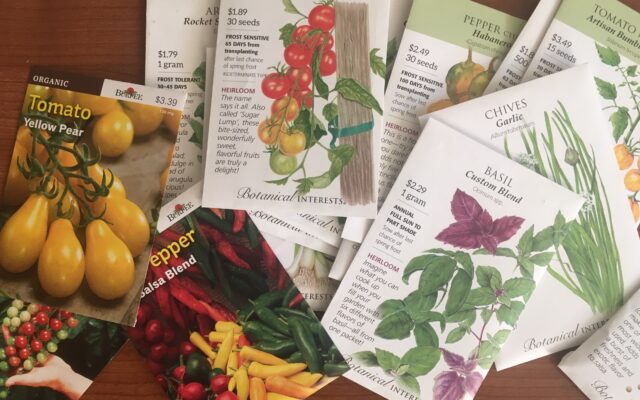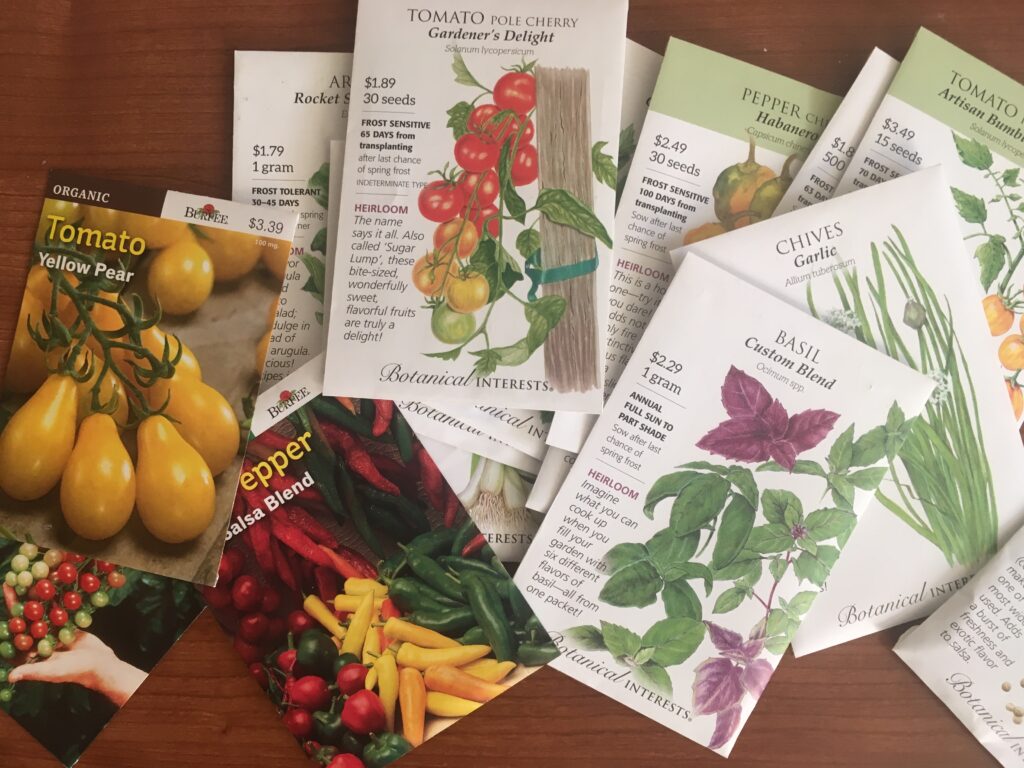
It sounds mean, but scratching up some seeds is the best thing for them
By Julia Bayly, Bangor Daily News Staff
Most of the time all it takes to grow a vegetable crop here in Maine is digging a hole, dropping in a seed, covering it and waiting for germination. But there are those seeds that need some encouragement to break out and start growing.
“It’s incredibly simple to grow most of our common plants in Maine,” said Kate Garland, horticulturist with the University of Maine Cooperative Extension. “All that’s required is sowing them in the soil.”
Others require a bit of pre-planting attention before putting them into the ground.
All seeds are living organisms that contain an embryo and stored energy protected by a hard seed coat. When the seed is exposed to the right combinations of light, soil moisture, temperature and oxygen, it will germinate and start to grow.

PLANTING SEEDS — There is a wealth of information on the back of seed packets. Reading it over will tell you if the seeds need any extra attention before planting.
“There are certain seeds that have specific requirements to break dormancy,” Garland said. “Sometimes seed dormancy can be really complicated depending on the species.”
Vegetables that have seeds with very hard coats will break dormancy and germinate more easily if they go through scarification. This is when they are scratched or nicked then soaked in water before planting.
To scarify your seeds you can use a nail file or piece of sandpaper to carefully rub the outside of the seed just until you see the lighter insides. Then place the scarred seeds in water for 12 hours. Keep an eye on them because once they start to swell, you need to get them into the ground right away.
Tough coated seeds that benefit from scarification include beans, melons and squashes.
Those seeds will still germinate without scarification, according to Garland. But doing so gives them a nice head start in the spring.
“What you are doing is creating a situation where the seed coat can be penetrated,” Garland said. “This allows water and gasses to get in and the seed to break dormancy.”
Hard coated seeds, large seeds or seeds with wrinkled coats such as peas,carrots, pumpkins, squash, okra, carrots and beets will germinate faster if you soak them in water for about 12 hours before planting them.
You can put them in a shallow bowl of water or on a damp paper towel sealed up in a plastic bag to allow them to moisten.
“It’s all about getting the seed coat to break down so the seed itself can get what it needs,” Garland said. “That’s why it’s important to know the needs of that plant.”
The best way to get to know your seeds and what each species needs is reading the back of seed packets, according to Garland.
“This is a really good time of year to start reading through your seed packets,” she said. “Some of those seeds are going to need a bit of a jump start before planting.”